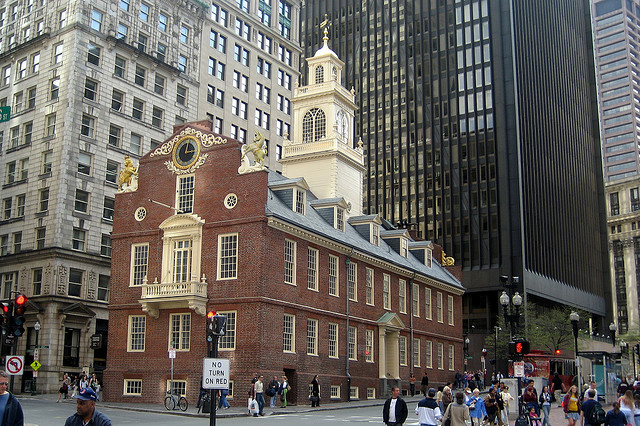If Boston is anything to a writer, it is a city worth commemorating.
As a native New Orleanian, born and bred, I can tell you that the popular motto “Boston Strong” seen and heard in the wake of the horrific 2013 Boston Marathon bombing was apt. Like New Orleans after numerous hurricanes, Boston displayed a notable resilience and tenacity in battling back after an unforeseen catastrophe. Boston is a strong, tough city with a famously strong, tough populace, embedded within a state that is truly remarkable. But just what makes Massachusetts unique? What makes “the Hub of the Universe”–as Oliver Wendell Holmes once dubbed its capital–unlike other cities?
Boston and the Bay State in which it resides are unique in that they preserve some of the oldest and richest culture not just in the United States, but in North America. Massachusetts was founded in 1620, Boston a decade later. Most American cities were founded centuries later. To live in Boston, as I did for nearly three years, is to live in perhaps the most European of cities, while still living in a city enriched by racial, ethnic, and religious diversity. It is to live in a city populated by old traditions, families, groups. And though it is infamous as a clannish, crusty city that can hinder outsiders from fully assimilating, it is fascinating fodder for any writer. Massachusetts boasts (yes, and our friends are quite known for boasting) a myriad of festivals, regattas, industries, holidays, expressions, dishes, clothing styles, architectural styles, and towns and cities that are truly unique. Boston specifically is a city that is so set apart that many visitors quickly realize most other American cities are young and bland by comparison. And Bostonians, and many in Massachusetts, will surprise. Bostonians will surprise not just with their sarcastic and often powerful wit, surely a product of generations of Irish immigration layered atop a very English foundation. There are warm and welcoming people to be found in feisty Boston, and they just might invite you to their party. And Boston, as my father once told me as a boy—is a city expert at celebrating.
In recent years, we have seen Boston increasingly in the press, long before that ill-fated day in April. Films like The Departed, Mystic River, Gone Baby Gone, and the novels of Dennis Lehane have exposed, or at least evoked, Boston’s criminal underbelly. I sought to celebrate another other side of Boston life: where rich meets poor, where bygone ages meet the modern era in a city that preserves much of its past, where densely populated eastern Massachusetts meets the vast deep of the Atlantic and the yacht-traversed Nantucket Sound. Perhaps more than anything, I wanted in Water Lessons to capture that which is most unique to the region, even more than its academic and intellectual pedigree, and that is its nautical heritage.
As a boy, I dreamed of one day living in New York City. But soon after Katrina, I found myself instead in Boston. I don’t regret it one bit. Beantown, I discovered, though not quite as worldly as the Big Apple, is perhaps more distinct, and Boston preserves its past, its buildings and groups and traditions far better. And being mindful of the past, tradition, and identity—pleasant or haunting—those are things that to a Southern mind, like that of my protagonist Jim Scoresby, prove second nature.





I have always wanted to visit Boston! So much of history as been lived there and I love history, especially American history.
You totally should, Rosemary! Ideally, in early to mid-October, to also catch the fall foliage while still viewing the historical sites. Just not in winter;